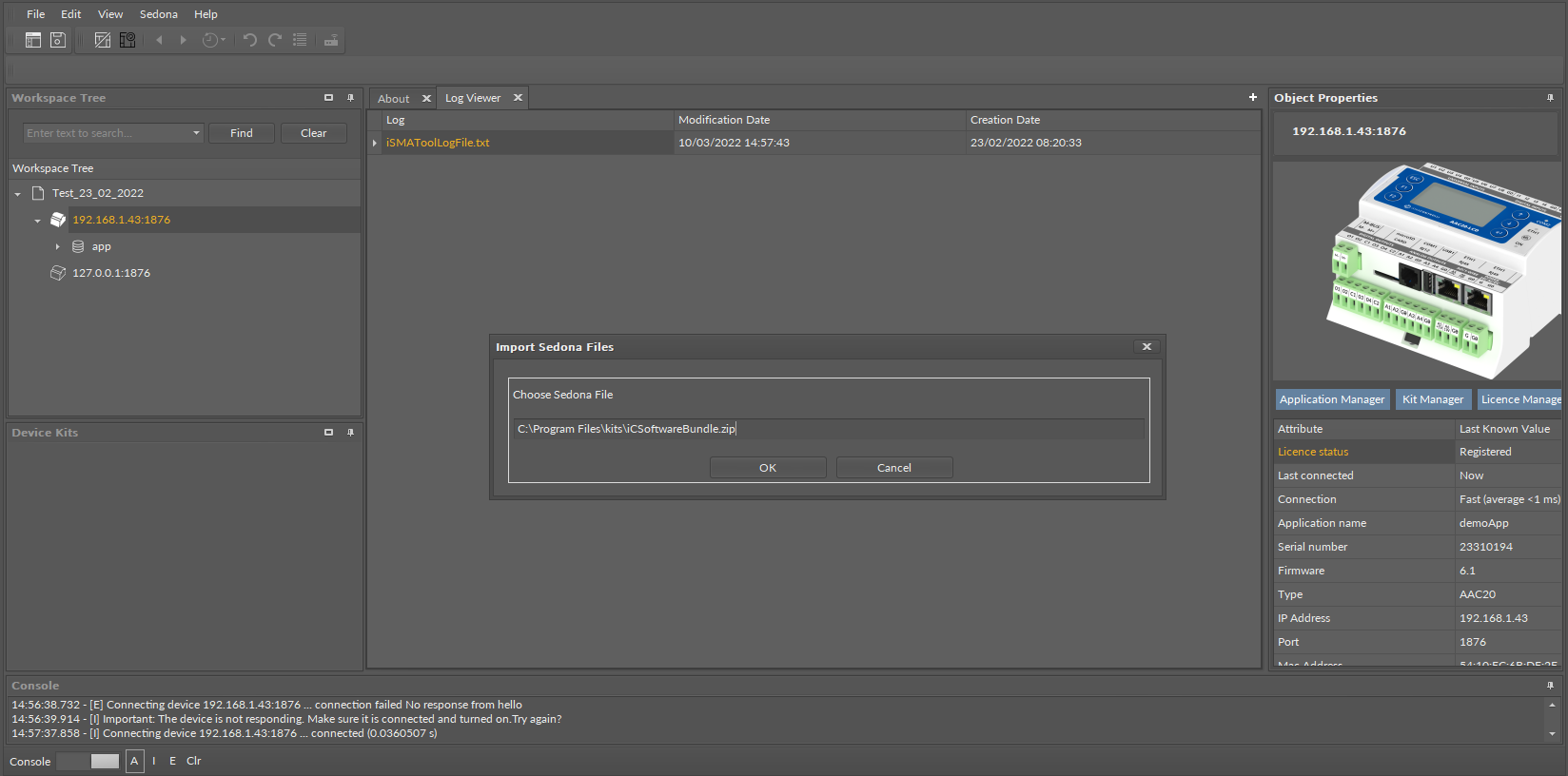There are 5 Modbus kits in the iSMA-B-AAC20 controller:
-
iSMA Modbus Async Network: to serve the Modbus RS485 master port of the iSMA-B-AAC20 controller;
-
iSMA Modules: extension of the Modbus Async Network to serve the iSMA multiprotocol I/O modules (MINI, MIX, or MAX series) or wireless modules using Modbus Async protocol;
-
iSMA Modbus TCP Network: to serve the Modbus TCP master of the iSMA-B-AAC20 device using IP connection;
-
iSMA Modbus TCP Slave Network: to serve the Modbus TCP slave of the iSMA-B-AAC20 controller using IP connection;
-
iSMA Modbus RJ12 Network: to serve the Modbus Async using RJ12 connection.
To install the Modbus kits, import the kits to the iSMA Tool (possibly as part of the package of various kits in a zip file). To do this, choose on the top bar menu Sedona -> Import Sedona Files.
After a successful import of the files, upload the files to your device using the Kit Manager Application.
WARNING! Before programming the Modbus network, please check if the latest kit version is used. The latest kits are available on the iSMA CONTROLLI support website: ismacontrolli.com

Importing newest Sedona kits to the iSMA Tool
Available Sockets
The iSMA-B-AAC20 controller has 16 sockets for Modbus network. 3 out of 16 sockets are permanently occupied for:
-
Modbus Server;
-
SOX;
-
web server.
Consequently, there are 13 sockets left to use in the device, for example, the Modbus TCP network can communicate with 13 devices with different IP addresses and connect them to application (adding more devices automatically forces them into the fault status). Also, adding any of the iSMA Weather or iSMA MailService kits occupies 1 socket per each kit (which becomes apparent after adding the kit and its components, saving the application, and rebooting the controller). The iSMA MailService kit can occupy more sockets if the mail service is configured for one account on one host–each next host occupies next sockets.
